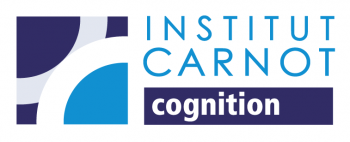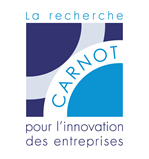Carnot Cognition

The Institut Cognition offers a one-stop shop in bilateral research in cognition to provide competitive innovation solutions for companies in a multidisciplinary approach. Cognitive technologies increase the added value of products and services in an increasingly personalised context of use: taking into account the user, his environment and the modes of interaction that are at stake. They integrate the factors that result from knowledge about cognitive functions and human behaviour: EMOTION – PERCEPTION – ATTENTION – MEMORY – DECISION – REASONING – LANGUAGE – VISION – STRESS – DEVELOPMENT – HEARING – TOUCHING
Key figures
Fermer
Key figures
| Permanent staff (full-time equivalent) | 1063 |
| PhD Students | 732 |
| Global budget | 127,8 M€ |
| Partnership incomes with industry | 13,7 M€ |
Contact
Fermer
Contact
Institut Carnot Cognition
ENSC-Bordeaux INP
109 avenue Roul
33400 Talence
Célestin SEDOGBO
Director
+33 (0)5 57 00 67 40
direction[a]institut-cognition.com
Parent institutions
Fermer
Parent institutions
- AIX-MARSEILLE UNIVERSITÉ
- CENTRE NATIONAL DE LA RECHERCHE SCIENTIFIQUE
- ECOLE DES HAUTES ÉTUDES EN SCIENCES SOCIALES
- ECOLE NATIONALE SUPÉRIEURE DES ARTS DÉCORATIFS
- ECOLE NORMALE SUPÉRIEURE
- ECOLE PRATIQUE DES HAUTES ÉTUDES
- ENS PARIS SACLAY
- INSTITUT FRANÇAIS DES SCIENCES ET TECHNOLOGIES DES TRANSPORTS, DE L'AMÉNAGEMENT ET DES RÉSEAUX
- INSTITUT NATIONAL POLYTECHNIQUE DE BORDEAUX
- INSTITUT NATIONAL POLYTECHNIQUE DE GRENOBLE
- INSTITUT NATIONAL POLYTECHNIQUE DE TOULOUSE
- UNIVERSITÉ D'AVIGNON ET DES PAYS DE VAUCLUSE
- UNIVERSITÉ DE BORDEAUX
- UNIVERSITÉ DE BOURGOGNE
- UNIVERSITÉ DE LILLE
- UNIVERSITÉ DE POITIERS
- UNIVERSITÉ DE SAVOIE MONT-BLANC
- UNIVERSITÉ DE TECHNOLOGIE DE COMPIÈGNE
- UNIVERSITÉ DE TOURS
- UNIVERSITÉ GRENOBLE ALPES
- UNIVERSITÉ PARIS 8
- UNIVERSITÉ PARIS DESCARTES
- UNIVERSITÉ TOULOUSE 2
- UNIVERSITÉ TOULOUSE 3
- UNIVERSITÉ TOULOUSE CAPITOLE

